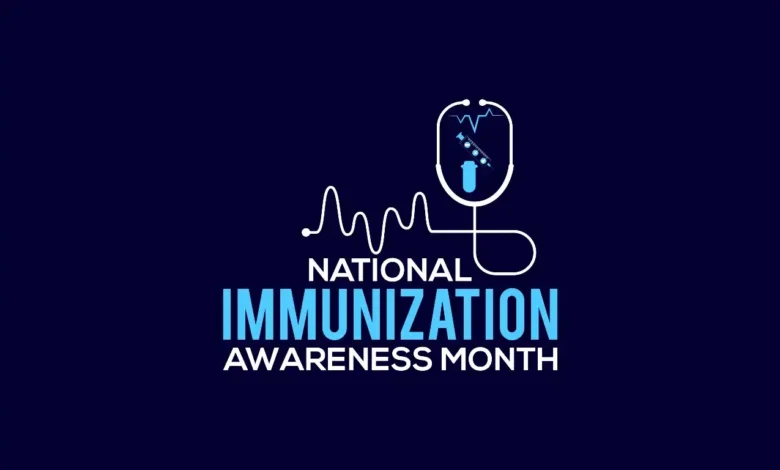August Is National Immunization Awareness Month

As the days, weeks, and months quickly continue to speed by, there are plenty of things that can be done with all of this time. Plenty of celebrations and awareness campaigns are connected to the healthcare sector as a whole. Thus, here at Nursa, we speak on some of the most well-known nationally recognized holidays and campaigns, so you never miss out on the latest healthcare news. Among other things, such as National Minority Blood Donor Month, August is also National Immunization Awareness Month.
Annually, August is recognized by many in the healthcare sector as National Immunization Awareness Month. Along with the overwhelming publicity for this awareness campaign, the CDC and FDA also remember it and highlight why this month exists and its importance. So what exactly is immunization awareness month? This month exists to highlight and promote the importance of vaccinations for folks of all ages. This year, handfuls of organizations are teaming up to spread even more awareness for this important month.
Why is this month important and held in such high esteem by those that recognize and spread awareness for it? This is because immunization is remembered as global health and developmental success story which has saved millions of lives. Immunization, whether through natural causes or vaccinations, heavily reduces the risk of getting a deadly disease. Through the method of vaccination for immunization purposes, there are now more than 20 vaccines to prevent life-threatening diseases worldwide, saving people of all ages.
In August of 2013, National Immunization Awareness Month was recognized for the first time as established by the National Public Health Information Coalition. The CDC later coordinated this campaign, becoming something of national importance over the years. As with every officially recognized date, they have a history of why they exist and their significance.
Although there are handfuls of vaccines today for adults, something that remains true from our childhoods is the importance of childhood vaccinations and how schools and educational facilities pushed the matter a few steps further. In the United States, most infants receive vaccinations, some starting on the first day of life. As a child grows, preteens and teens are often required to have specific vaccinations to defend themselves and other students from deadly conditions while attending school. These vaccines can help protect against meningitis, blood infections, cancers, tetanus, Diptheria, whooping cough, and perhaps others if required by a specific learning facility.
How Does Natural Immunization Work?
While vaccines are heavily recommended by numerous individuals and organizations, an alternate for those who choose not to vaccinate exists, which is your body working naturally to defend itself against deadly diseases and germs. Natural immunization is obtained when a germ infects the body, and the immune system responds by creating antibodies to protect against the infection in the future. Although you can still get sick from the initial infection, the antibodies produced by your immune system will allow your body to better defend against the infection in the future. This is your immune system doing its job to protect against diseases and illness.
How Does Vaccine-Acquired Immunity Work?
Contrary to obtaining natural immunization, one of the other heavy focuses of immunization awareness month is the use of vaccines to receive immunization. Like natural immunization, this immunity is obtained through your body defending itself against infection or illness. In the case of vaccination, a killed or weakened form of the disease organism is introduced to your body through the vaccination for your body to defend itself against it if you happen to catch the illness in the future. While both of these methods, it is still possible to contract a disease and become sick from it, natural immunity is believed to be more robust and durable for certain illnesses, as studies have demonstrated it is with the SARS-Co-V-2 vaccination.






